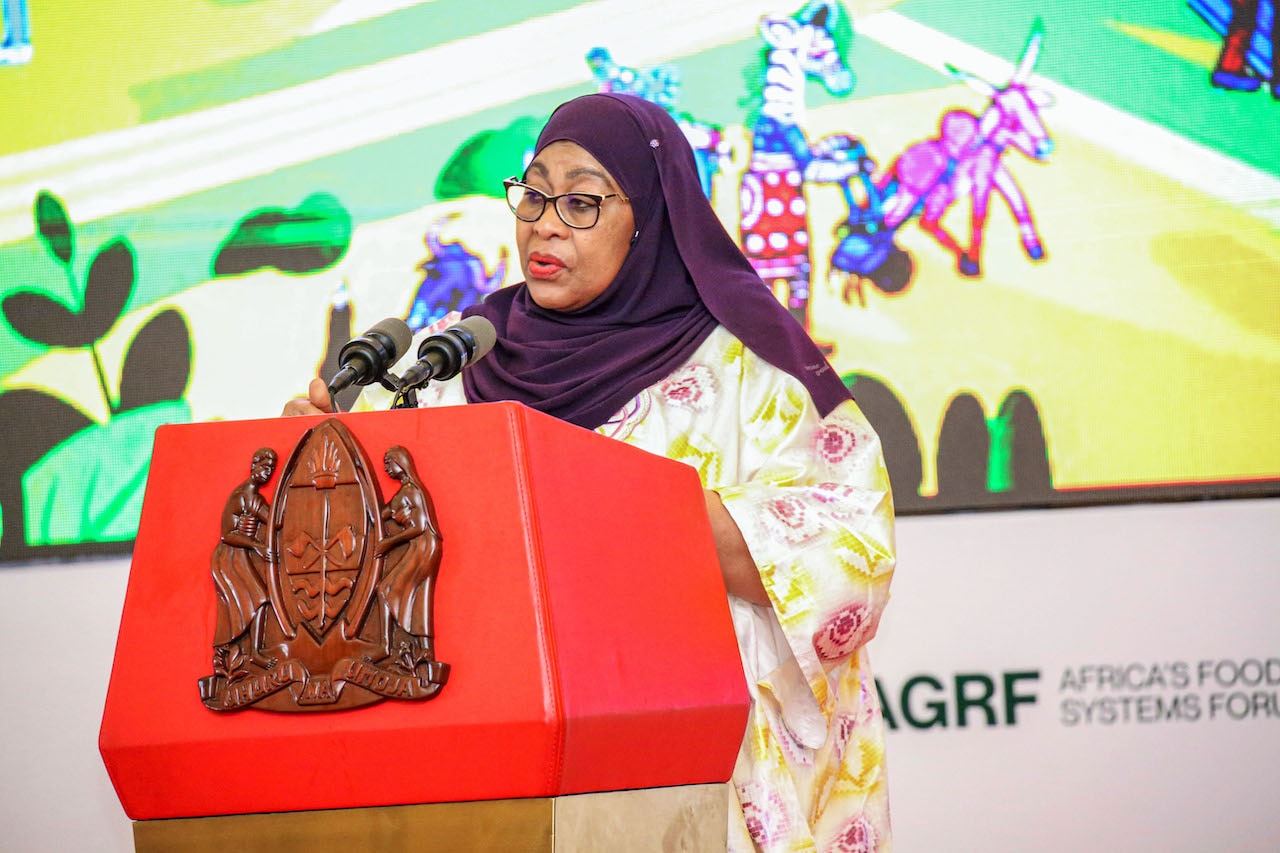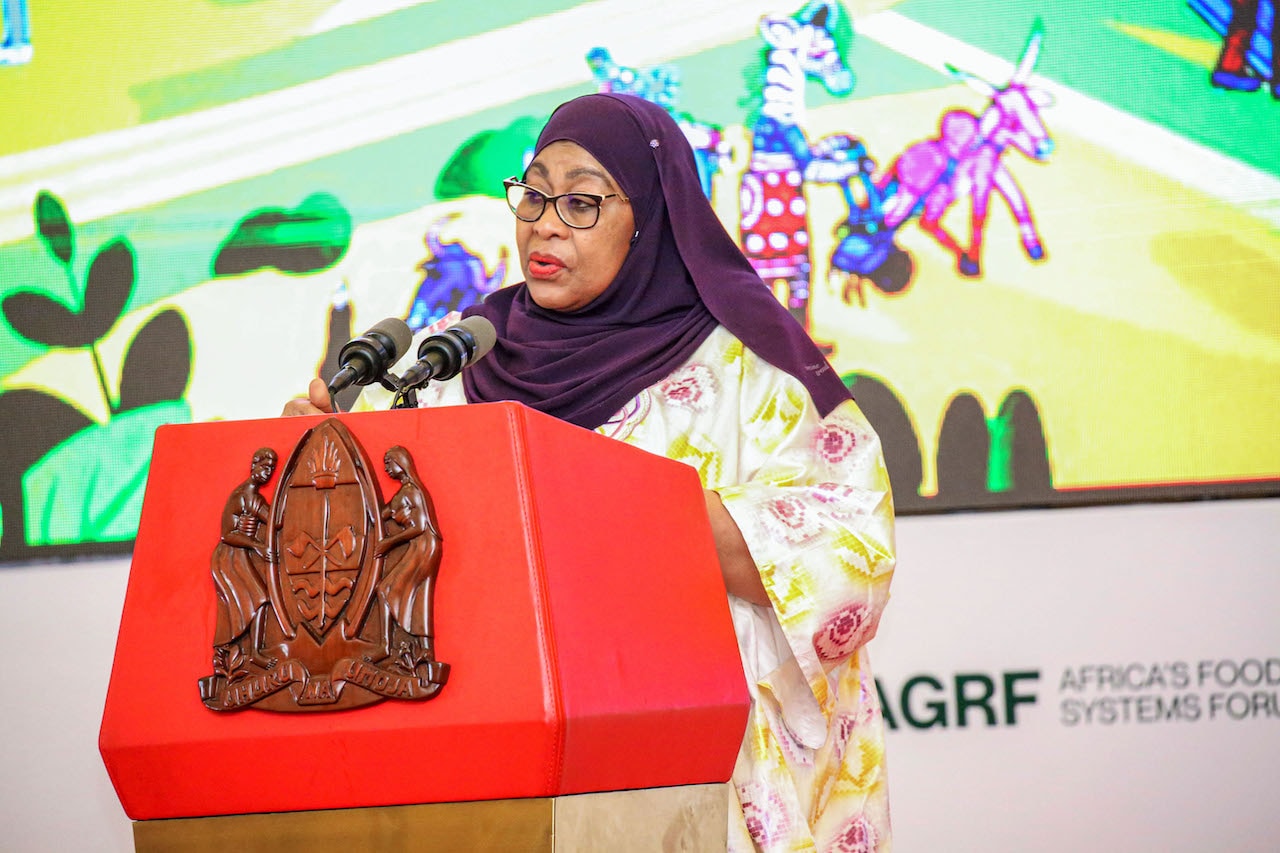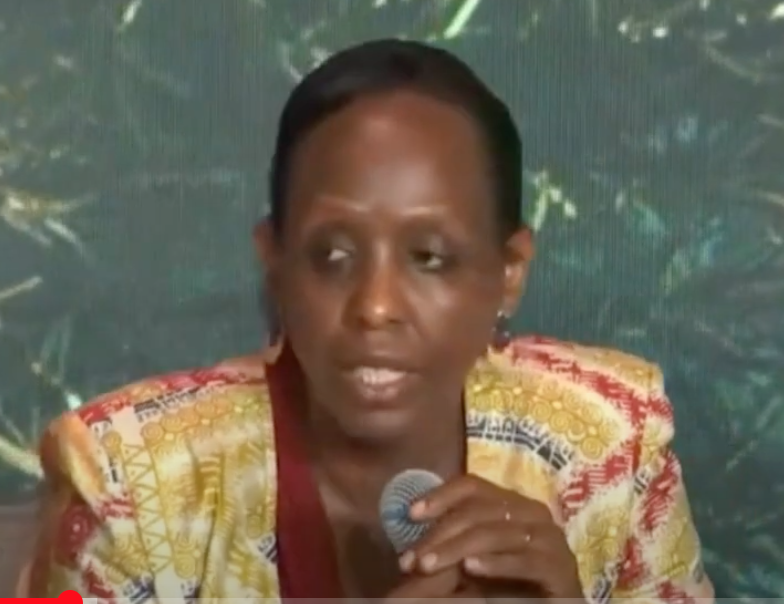Samia: How SADC can end hunger by 2030
Arusha, 6th July 2023 – President Samia Suluhu Hassan of Tanzania addressed the Southern African Development Community (SADC) member states on Monday, emphasizing the importance of achieving regional food security. Speaking at the 53rd Plenary Assembly Session of the SADC Parliamentary Forum, President Samia provided insights and recommendations for attaining self-sufficiency in food production.
President Samia highlighted the need for a strong commitment to implementing existing policies, such as the 2014 SADC Region Agriculture Policy. She also stressed the significance of supporting food production through input programs and promoting intra-SADC trade. Furthermore, she underscored the importance of key initiatives such as the African Continental Free Trade Area (AfCFTA), the blue economy, and conservation agriculture in building resilience and ensuring food security within the regional economic bloc.
“We have developed numerous measures, but it is imperative that we go beyond planning and start implementing them effectively to boost food production,” urged President Samia.
She further challenged the SADC member states to prioritize the implementation of Agenda 2063, the African Union’s blueprint for transforming the continent into a global powerhouse. Specifically, she highlighted the importance of Goal 1, which emphasizes modern agriculture for increased productivity and production, and Goal 2 of the Sustainable Development Goals, which aims to achieve Zero Hunger by 2030.
With an estimated 51.3 million food-insecure people within the SADC’s population of approximately 380 million, President Samia deemed the situation unacceptable. She pointed out that the region possesses vast land resources, covering 9.85 million square kilometers, which could potentially meet the food requirements not only for Africa but also beyond.
The president emphasized the critical role of legislators in achieving a food secure continent. She emphasized the significance of national and regional parliaments in their oversight roles, enactment of necessary laws and policies, and ratification of regional and global protocols that encourage agricultural development.
President Samia also stressed the importance of investing in the youth to ensure a food secure future for the continent. She highlighted Tanzania’s efforts in attracting young people to agriculture through initiatives such as Building a Better Tomorrow (BBT), which coordinates projects supporting youth in agribusiness across the country. The government is facilitating access to land, financial support, technology, market opportunities, and capacity enhancement to encourage youth participation in agriculture. The president shared that currently, 812 young men and women are undergoing on-job training, awaiting enrollment in 13 incubation centers for hands-on skills development in agribusiness and block farming systems.
In addition, President Samia reassured the delegates that Tanzania is committed to increasing budgetary allocations for the agriculture sector, with a particular focus on irrigation schemes and extension services, in line with the 2004 Dar es Salaam Declaration on agriculture and food security.
SADC-PF President Roger Mancienne expressed his appreciation for President Samia’s leadership and Tanzania’s commitment to inter-parliamentary cooperation within the SADC region. The forum participants, comprising Members of Parliament from SADC national parliaments, are expected to deliberate on implementable measures to address food insecurity, youth unemployment, and climate change impacts on agriculture. The goal is to develop adaptation strategies that can be effectively implemented by SADC Member Parliaments, leading to sustainable agriculture, improved food security, and youth employment creation.
As the 53rd SADC Plenary Assembly Session continues, stakeholders hope that the shared insights and collaborative efforts will pave the way for a more prosperous and food secure future for the entire region.


